MercoPress. South Atlantic News Agency
Fisheries
-
Wednesday, July 22nd 2015 - 01:07 UTC
“Another example of efforts to damage the Falklands' economy”
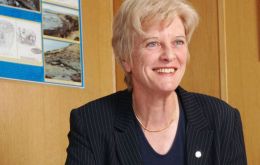
The Falkland Islands government reacted strongly to statements by the Argentine official in charge of Malvinas affairs who claimed that “the theft of squid and other valuable fish stocks” in the South Atlantic, was the reason behind the success of the Islands' economy, according to a report from the Express.co.uk.
-
Monday, June 22nd 2015 - 05:17 UTC
IUU fishing: Spain announces €11 million penalties against Galicia syndicate
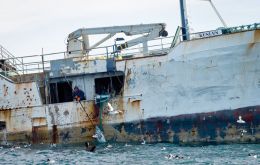
Spanish government last Friday announced penalties that could reach more than €11 million against Spanish nationals, including companies involved in illegal, unreported and unregulated (IUU) fishing. An EU coalition of three international NGOs, including Environmental Justice Foundation, Oceana and WWF described the fines as a historic moment in the battle against IUU fishing and are calling on other EU member states to follow suit with their own nationals.
-
Wednesday, June 17th 2015 - 04:38 UTC
Falklands have a bright future and Islanders the resolve to face harassment and bullying

The Falkland Islands have a bright future, not without challenges, or harassment or bullying, but the Islanders will face them with the same strength, tenacity and resolve that helped them through the conflict 33 years ago, said Foreign Office minister Hugo Swire at the annual Falklands' Government Reception in London.
-
Tuesday, June 9th 2015 - 07:28 UTC
FI Holdings' profits helped by Falklands increased activity and investments

Falkland Islands Holdings PLC said on Monday that underlying pre-tax profit and revenue was broadly flat in its recently-ended financial year, and trading so far in the new year has met its expectations as it seeks to accelerate its growth and increase its scale through acquisitions.
-
Saturday, June 6th 2015 - 09:16 UTC
Punta Arenas fishing industry complains of a sharp fall in catches and landings

The fishing industry in Punta Arenas, extreme south of Chile, is going through a serious recession --30% fall in landings-- which is not only impacting the activity of the four main companies, with lesser jobs, but also port operations and the price of freight as volumes are smaller, warned this week Enrique Gutierrez, General Manager of Pesca Chile.
-
Wednesday, June 3rd 2015 - 09:24 UTC
Falklands advances despite Argentine disruption and blockade efforts, says Acting Governor Sandra Tyler-Haywood

Falkland Islands' Her Honour the Acting Governor delivered on Tuesday his State of the Nation speech to the elected Legislative Assembly underlining progress and expansion achieved in the economy and community development, the UK resolute in defending the rights and wishes of the Falkland Islanders to develop their own natural resources, and despite Argentine disruption and blockade efforts, first oil is expected to be produced in 2019.
-
Wednesday, May 20th 2015 - 20:44 UTC
'Record' seven-foot conger eel trawled off Plymouth in UK

Commercial fishermen trawling off the coast of the United Kingdom near Plymouth were stunned last week when they brought aboard a seven-foot, roughly 130-pound conger eel. The eel had gotten caught up in the trawler’s nets and was already dead by the time it was brought out of the water, but its sheer size surprised even the fishermen on board.
-
Monday, May 18th 2015 - 05:17 UTC
FAO's agenda includes fighting illegal fishing in the Mediterranean and Black Sea
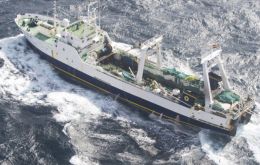
In a global context of fierce competition for fishery resources which are progressively being depleted as a consequence of overfishing, overexploitation and overcapacity, illegal, unreported and unregulated (IUU) fishing has become a growing concern, points out a FAO fisheries release.
-
Monday, May 18th 2015 - 04:19 UTC
Notorious poacher 'Perlon' detained in Malaysia with 330 tons of illegal toothfish
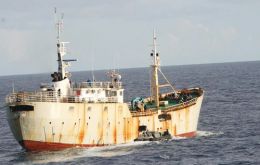
New Zealand fishing company Sanford is welcoming news that a Nigerian registered vessel has been detained in Malaysia and 330 tons of toothfish confiscated from it. Sanford is one of only two New Zealand companies permitted to source toothfish from the Ross Sea fishery.
-
Wednesday, May 6th 2015 - 06:18 UTC
Cutting down killer whale toothfish snacking in South Georgia
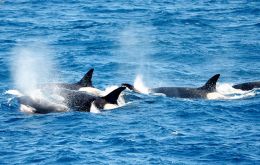
Studies of killer whales (Orca) in South Georgia waters may help fishermen avoid the whales stealing the fish off the fishing long-lines (termed depredation), according to the latest edition of South Georgia Newsletter.
